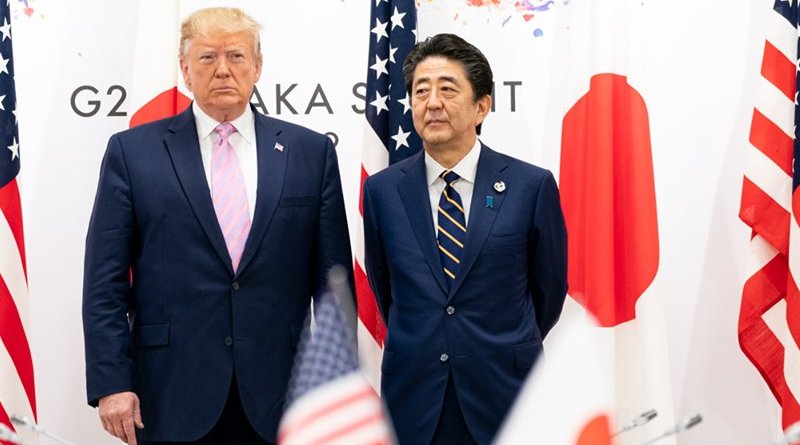US, South Korea, And Japan: Recognising The Value Of Alliances – Analysis
By IPCS
By Dr Sandip Kumar Mishra*
On 24 February 2020, South Korean Defence Minister Jeong Kyeong-doo met his American counterpart, Secretary of Defence Mark Esper, in Washington. The meeting did not result in a breakthrough on the issue of cost-sharing for US troop presence in South Korea. There have been six such inconclusive meetings between the two countries in the past few months.
US President Donald Trump is of the belief that Japan and South Korea must contribute to monetary burden-sharing for the presence of US troops in their countries. During his 2016 election campaign, Trump clearly stated that Japan and South Korea had not been paying “enough” for their own security, and labelled them “free-riders.” After coming to power, he reiterated on multiple occasions his intention to try and impose the entire cost of these alliances on Japan and South Korea.
There are around 50,000 US troops in Japan and 28,500 in South Korea. This presence is part of US’ obligations under the Treaty of Mutual Cooperation and Security with Japan and South Korea which was signed in the early 1950s. Of the total costs, Japan directly bears around US$ 2 billion, and South Korea, around US$1. In addition, there are several other indirect mechanisms through which Japan and South Korea pay the US to sustain troop presence in their respective countries, such as the compulsory annual purchase of US defence equipment. Between 2008 and 2016, South Korea made defence purchases worth US$ 22.5 billion from the US. These mechanisms also extend to trade deals, which are deliberately framed in favour of the US.
There are also political costs to sustaining this alliance. For example, there are frequent reports of US troops misbehaving with civilians and Japanese and Korean defence personnel. The areas where US troops are stationed have witnessed several occasions of civil unrest. Korean and Japanese movies and novels have depicted the troops in a negative light as a reflection of popular resentment. Criticism has also been mounted on the basis of reported restrictions on Japanese and Korean defence decision-making on operational issues as a result of turf tensions with US troops. In response, South Korea has in fact gradually begun to take charge of the Combined Forces Command’s peace and war-time controls.
Clearly, Japan and South Korea do not calculate the costs of their alliance solely on the basis of these issues. A thorough cost-benefit assessment of the value of the relationship sustains their relationships. They share a commitment to maintaining a regional order in which democracy, free market economics, human rights, and cooperative security are primary concerns, and the alliance with the US helps defend and expand these principles.
However, this value is apparently lost on President Trump, who has thus far been unable to see beyond a mechanical and immediate economic reciprocity. He does not appear to be interested in sustaining the existing order, and sharing its costs with US allies. After all, US troop presence in South Korea and Japan not only provides security to these allied countries but also augments US’ regional military presence, particularly with regard to its contestation with China. More importantly, the US alliance system has a broader political goal: to help expand the influence of like-minded states in the region, and work together as a bulwark against revisionist and disruptive tendencies seen emerging from China, North Korea, and Russia.
Of course, it may be useful to have a debate on the specifics of alliance cost-sharing – but this should not be at the cost of overshadowing other equally, if not more, important aims. Under Trump, the US has essentially imposed its interpretation of costs on Japan and South Korea, its long-term allies in the region. This displays either a lack of understanding, or a deliberate disregard for the real value of the alliance system. This may lead to narrow economic benefits for the US in the short-term, but significant political losses will be incurred in the long-term.
*Dr Sandip Kumar Mishra is Associate Professor, Centre for East Asian Studies, SIS, JNU, and Visiting Fellow, IPCS

